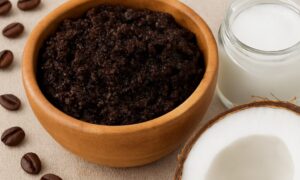Dry hair can be challenging to manage. It often feels brittle, looks dull, and can lead to split ends and breakage if not properly cared for. Many commercial shampoos contain harsh chemicals that can strip the natural oils from your scalp and hair, making dryness worse. That’s why more people are turning to homemade shampoos that nourish and hydrate dry hair using natural ingredients. Making your own shampoo at home is not only gentle on your hair but also cost-effective and customizable based on your hair’s specific needs.
Why Choose Homemade Shampoo for Dry Hair?
The main cause of dry hair is a lack of moisture and natural oils. When hair doesn’t get enough hydration, it loses its shine and becomes prone to damage. Most store-bought shampoos contain sulfates and detergents that clean hair by removing oils, but they often overdo it, leaving hair dry and stripped. Homemade shampoos use natural cleansing agents and moisturizing ingredients that gently clean the scalp without robbing the hair of its natural oils.
Additionally, making shampoo at home allows you to control exactly what goes into it. You can avoid artificial fragrances, preservatives, and chemicals that might irritate your scalp or dry out your hair. Plus, many natural ingredients contain vitamins and antioxidants that strengthen hair from root to tip.
Key Ingredients for Homemade Shampoo for Dry Hair
When crafting a shampoo for dry hair, it’s important to combine cleansing agents with nourishing ingredients. Here are some popular natural ingredients that help keep dry hair moisturized and healthy:
- Castile Soap: This gentle soap made from olive oil or other plant oils acts as the base cleanser. It lathers well but doesn’t strip hair of moisture like harsher detergents.
- Coconut Milk: Rich in fatty acids and vitamins, coconut milk hydrates and soothes dry scalp and hair strands.
- Aloe Vera Gel: Known for its moisturizing and healing properties, aloe vera soothes irritation and helps retain moisture.
- Honey: A natural humectant, honey draws moisture into the hair and keeps it hydrated for longer periods.
- Essential Oils: Oils like lavender, rosemary, or chamomile add fragrance and can stimulate the scalp or reduce dryness.
- Vegetable Glycerin: Helps to lock moisture into hair and keeps strands soft.
- Carrier Oils: Adding small amounts of jojoba, argan, or almond oil can further nourish and seal in moisture.
Simple Homemade Shampoo Recipe for Dry Hair
Here’s a straightforward recipe to make a moisturizing shampoo for dry hair at home:
Ingredients:
- 1/2 cup liquid castile soap (unscented or gentle variant)
- 1/4 cup coconut milk (fresh or canned, unsweetened)
- 1 tablespoon honey
- 1 tablespoon aloe vera gel
- 1 teaspoon vegetable glycerin (optional)
- 10-15 drops of your favorite essential oil (lavender or rosemary recommended)
- 1 teaspoon jojoba or almond oil
Instructions:
- In a clean bowl or bottle, combine the castile soap and coconut milk. Stir gently to blend.
- Add honey and aloe vera gel to the mixture. These ingredients will help provide hydration and soothe dryness.
- If you have vegetable glycerin, add it to help retain moisture in your hair.
- Mix in your essential oils for a pleasant scent and added benefits.
- Finally, add the carrier oil and mix everything thoroughly but gently to avoid creating too much foam.
- Pour the shampoo into a bottle with a pump or squeeze top for easy use.
How to Use Your Homemade Shampoo
- Wet your hair thoroughly with warm water.
- Apply a small amount of the homemade shampoo to your scalp and massage gently using your fingertips. Avoid rubbing too harshly, as dry hair can be fragile.
- Work the shampoo down the length of your hair, but keep the focus on the scalp where most oil and dirt accumulate.
- Rinse thoroughly with lukewarm water.
- Follow up with a moisturizing conditioner or natural hair mask to seal in hydration.
Tips for Caring for Dry Hair
Besides using the right shampoo, there are a few habits you can adopt to help manage dry hair better:
- Limit washing frequency: Washing hair too often can strip natural oils. Try washing 2-3 times a week.
- Avoid hot water: Hot water can dry out your scalp and hair. Use lukewarm or cool water when washing.
- Use a deep conditioning treatment: Once a week, use a nourishing hair mask made from ingredients like avocado, olive oil, or yogurt to restore moisture.
- Minimize heat styling: Frequent use of blow dryers, straighteners, or curling irons can worsen dryness. Air dry when possible and use heat protectant sprays.
- Trim regularly: Regular trims help remove split ends that make dry hair look damaged.
- Protect your hair from the sun: Wear hats or scarves when exposed to strong sunlight, which can dry out hair.
Benefits of Natural Ingredients for Dry Hair
Using natural ingredients helps maintain the scalp’s balance, preventing excessive dryness and irritation. Coconut milk contains lauric acid, which deeply penetrates hair strands to provide moisture and prevent protein loss. Aloe vera helps reduce scalp inflammation and hydrates the skin. Honey’s humectant properties make it excellent for drawing and locking in moisture. Castile soap offers gentle cleansing without harsh chemicals, while essential oils not only add scent but may also stimulate hair growth and improve scalp health.
Customizing Your Shampoo
One of the advantages of making your own shampoo is the ability to tweak ingredients to fit your unique hair needs. If your hair is extremely dry, consider increasing the amount of coconut milk or carrier oils. If you have sensitive skin, opt for milder essential oils like chamomile or avoid them altogether. Experiment with different oils and hydrating agents to find what works best for your hair type and scalp condition.
Storage and Shelf Life
Since homemade shampoos don’t contain preservatives, they should be stored in the refrigerator and used within 1-2 weeks. Shake the bottle well before each use as natural ingredients may separate over time.
Making your own shampoo at home can be a rewarding way to care for dry hair naturally. With simple ingredients and a bit of time, you can create a nourishing, chemical-free shampoo that brings back softness and shine to your hair. Try this recipe or customize your own formula and enjoy the benefits of healthy, hydrated hair all winter long.


























